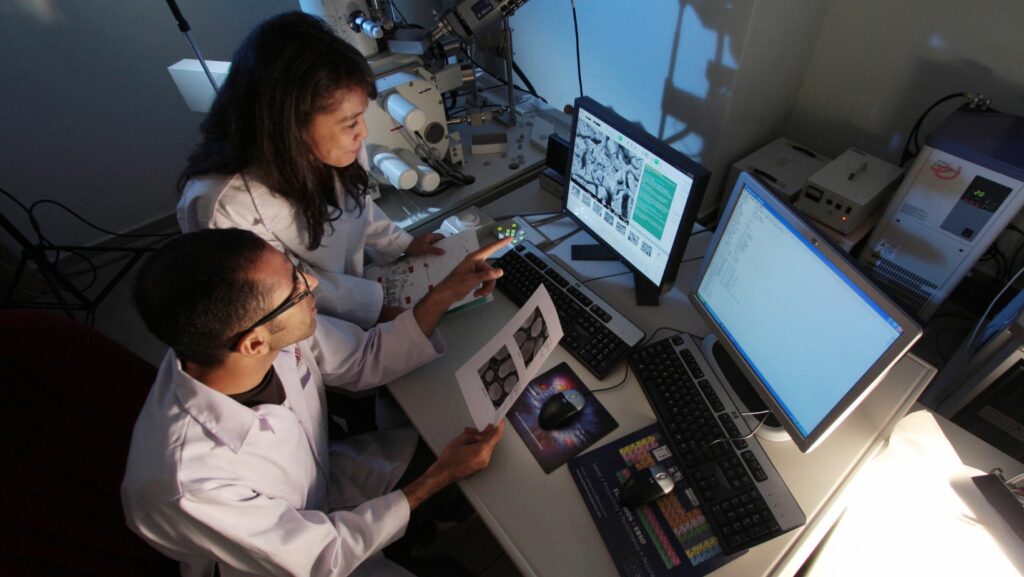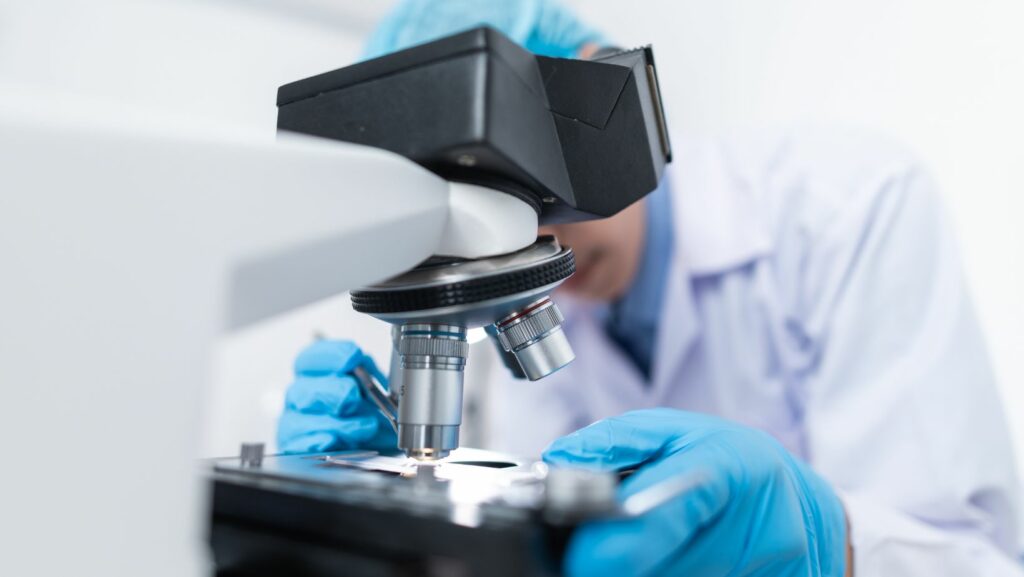Key Takeaways
- Rapid Market Growth: The life science industrial automation market is expanding due to technological advancements and the increasing need for operational efficiency in pharmaceutical and biotechnology sectors.
- Integration of Advanced Technologies: Automation solutions incorporating robotics, artificial intelligence, and data analytics are revolutionizing processes, enhancing productivity, and ensuring compliance with stringent regulations.
- Key Market Segments: The market includes critical end-use applications like pharmaceuticals, biotechnology, and medical devices, each benefiting from tailored automation solutions designed to improve production and compliance.
- Competitive Environment: Major players such as Siemens, Rockwell Automation, ABB, Emerson, and Schneider Electric are driving innovation and shaping market trends through significant investments in automation technologies.
- Future Trends: Trends such as smart manufacturing, personalization of therapies, and the expansion into emerging markets indicate a sustained growth trajectory for the life science industrial automation market, emphasizing efficiency and regulatory compliance.
The life science industrial automation market is rapidly evolving, driven by advancements in technology and increasing demand for efficiency in research and production. As pharmaceutical and biotechnology companies strive for innovation, automation solutions are becoming essential for streamlining processes and enhancing productivity.
With the integration of robotics, artificial intelligence, and data analytics, organizations are transforming their operations to meet stringent regulatory standards while reducing costs. This shift not only improves accuracy but also accelerates time-to-market for critical therapies and diagnostics. As the market continues to expand, understanding the key trends and challenges will be vital for stakeholders looking to navigate this dynamic landscape.
Life Science Industrial Automation Market
 The life science industrial automation market encompasses technologies aimed at improving operations within pharmaceutical and biotechnology companies. This market is characterized by its rapid growth, fueled by increasing pressures for operational efficiency and compliance with stringent regulations.
The life science industrial automation market encompasses technologies aimed at improving operations within pharmaceutical and biotechnology companies. This market is characterized by its rapid growth, fueled by increasing pressures for operational efficiency and compliance with stringent regulations.
Automation solutions play a crucial role in enhancing productivity. They streamline processes through the integration of robotics, artificial intelligence, and data analytics. These technologies are essential for meeting regulatory standards while minimizing operational costs.
Key trends in the market include the rise of smart manufacturing, which utilizes data-driven insights to optimize production. Companies are adopting sophisticated automation systems to enhance accuracy, reduce human error, and improve safety protocols.
Challenges in this market involve navigating complex regulatory landscapes. Companies must ensure compliance with local and international standards while implementing new technologies. Addressing these challenges effectively positions companies to capitalize on growth opportunities.
The market landscape is dynamic, with major players investing in innovative automation solutions. Their focus on research and development accelerates the introduction of cutting-edge technologies, driving the market further. Ongoing advancements indicate a strong future for life science industrial automation, marked by improved efficiency and accelerated time-to-market for critical therapies and diagnostics.
Key Drivers Of Market Growth
 The life science industrial automation market experiences substantial growth driven by several key factors. Technological advancements and a growing demand for efficiency play crucial roles in transforming this sector. Technological advancements significantly boost the life science industrial automation market. Automation technologies, such as robotics, artificial intelligence, and machine learning, enhance process precision and operational speed. Robotics streamlines repetitive tasks, while AI improves decision-making and predictive analytics. The adoption of Internet of Things (IoT) devices allows for real-time monitoring and data collection, enabling smarter manufacturing processes. These innovations help organizations comply with stringent regulations while reducing human error and operational costs.
The life science industrial automation market experiences substantial growth driven by several key factors. Technological advancements and a growing demand for efficiency play crucial roles in transforming this sector. Technological advancements significantly boost the life science industrial automation market. Automation technologies, such as robotics, artificial intelligence, and machine learning, enhance process precision and operational speed. Robotics streamlines repetitive tasks, while AI improves decision-making and predictive analytics. The adoption of Internet of Things (IoT) devices allows for real-time monitoring and data collection, enabling smarter manufacturing processes. These innovations help organizations comply with stringent regulations while reducing human error and operational costs.
Increasing Demand For Efficiency
Increasing demand for efficiency further drives market growth. Pharmaceutical and biotechnology companies face pressure to maximize productivity and minimize time-to-market for essential therapies. Efficient automation solutions automate labor-intensive processes, reducing turnaround times and increasing throughput. Enhanced data analytics capabilities enable firms to monitor production metrics closely, identifying bottlenecks and optimizing operations. As competition intensifies, organizations increasingly invest in automation to sustain their market position and meet evolving consumer needs.
Market Segmentation
The life science industrial automation market is diverse, encompassing various segments that tailor solutions to meet specific needs. Key segmentation criteria include end-use applications and control systems.
By End-Use Application
Pharmaceuticals, biotechnology, and medical devices represent significant end-use applications within the life science industrial automation market.
- Pharmaceuticals: Automation enhances drug development and manufacturing processes, streamlining production lines and ensuring compliance with regulatory requirements.
- Biotechnology: Automation supports research and production of biotech products, increasing throughput and data accuracy in laboratory and manufacturing environments.
- Medical Devices: Automation helps optimize the assembly and testing of medical devices, ensuring they meet safety standards while reducing production costs.
By Control System
Control systems play a critical role in the effectiveness of automation solutions in the life sciences sector.
- Distributed Control Systems (DCS): DCS provides robust monitoring and control over complex processes, facilitating real-time data collection and analysis.
- Programmable Logic Controllers (PLC): PLCs offer flexibility and reliability, enabling efficient management of machinery and automated manufacturing processes.
- Supervisory Control and Data Acquisition (SCADA): SCADA systems oversee and control industrial processes at a high level, improving response times to operational issues and ensuring compliance.
Each segmentation offers targeted benefits, helping organizations enhance productivity while adhering to industry regulations.
Competitive Landscape
The life science industrial automation market features a dynamic competitive arena with several key players influencing its growth and direction. Identifying the major stakeholders and understanding market share dynamics provides insight into trends and future developments.
Major Players In The Market
- Siemens AG: Siemens excels in integrating industrial automation solutions with strong sectors in pharmaceuticals and biotechnology, focusing on technological innovations and smart manufacturing.
- Rockwell Automation, Inc.: Known for its advanced automation and information solutions, Rockwell targets the efficiency and regulatory compliance needs of life science companies, offering tailored solutions for various applications.
- ABB Ltd.: ABB focuses on robotics and AI technologies, enhancing precision in manufacturing processes while reducing operational costs for life science organizations.
- Emerson Electric Co.: Emerson emphasizes process automation and advanced data analytics, enabling clients to streamline operations, improve efficiency, and adhere to stringent regulations.
- Schneider Electric SE: Schneider provides comprehensive automation solutions that prioritize sustainability and energy efficiency in life science operations, reinforcing compliance and safety standards.
| Company | Market Share (%) |
|---|---|
| Siemens AG | 20 |
| Rockwell Automation, Inc. | 15 |
Future Trends And Opportunities
Significant trends are shaping the future of the life science industrial automation market. Increasing investments in smart manufacturing technologies enhance production efficiency. Firms adopt artificial intelligence for predictive maintenance, reducing downtime and optimizing operational capabilities.
Regulatory compliance drives the demand for automation solutions. Automation systems help ensure adherence to Good Manufacturing Practices (GMP) and other regulations. Advanced data analytics enhance traceability and audit readiness, further supporting compliance efforts.
Customization of automation solutions is becoming essential. Organizations seek tailored systems to address specific challenges in drug manufacturing, biotechnology research, and medical device production. Flexible automation technologies allow companies to adapt to evolving demands and enhance throughput.
Collaboration among industry stakeholders is increasing. Partnerships between technology providers, pharmaceutical companies, and research institutions foster innovation. This collaborative environment facilitates the development of new technologies that address market needs more effectively.
Growth in personalized medicine and biologics is opening new opportunities. Automation plays a crucial role in scaling production processes for these therapies. Companies are investing in modular automation systems that support small-batch production while maintaining quality and compliance.
Expansion into emerging markets presents additional avenues for growth. Companies are targeting regions with rising healthcare needs, such as Asia-Pacific and Latin America. Increasing disposable incomes and improving healthcare infrastructure create a demand for automated life science solutions.
Overall, future trends in life science industrial automation reflect a commitment to innovation and efficiency. Significant advancements in technology, along with adherence to regulatory requirements, position the market for sustained growth and transformation.
The life science industrial automation market is poised for remarkable growth driven by technological advancements and the need for operational efficiency. As companies increasingly adopt automation solutions, they’re not only enhancing productivity but also ensuring compliance with stringent regulations. The integration of smart manufacturing and data analytics is transforming how organizations operate, paving the way for faster development and delivery of critical therapies.
With major players investing in innovative technologies, the future looks bright. Customization and collaboration will be key as firms seek tailored solutions to navigate challenges in drug manufacturing and biotechnology. As the market expands into emerging regions, the commitment to innovation and efficiency will continue to shape its evolution, reinforcing the importance of automation in the life sciences.



